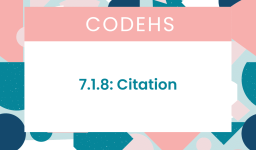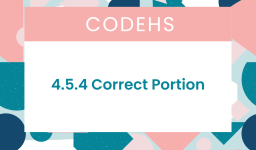The most common answer is:
numerator = int(input(“Enter a numerator: “))
denominator = int(input(“Enter denominator: “))
If denominator is 0, this will result in a division-
by-zero error! Add in code to solve this issue:
try:
if numerator / denominator * denominator == numerator:
print “Divides evenly!”
except ZeroDivisionError:
print “Doesn’t divide evenly.”To correctly handle division by zero and check for divisibility, we can modify your code to use a try-except block properly and ensure the usage of standard ASCII quotation marks.
Additionally, the logic for checking divisibility can be simplified by using the modulo operator %, which directly checks if the remainder of the division is zero.
Here’s the revised version of the code:
numerator = int(input("Enter a numerator: "))
denominator = int(input("Enter a denominator: "))
# Checking for division by zero and divisibility
try:
# Correct way to check for divisibility
if numerator % denominator == 0:
print("Divides evenly!")
else:
print("Doesn't divide evenly.")
except ZeroDivisionError:
print("Cannot divide by zero.")
This program will:
- Prompt the user to enter a numerator and a denominator.
- Use a
try-exceptblock to catch and handle division by zero errors. - Check if the numerator divides evenly by the denominator using the modulo operator
%. - Print “Divides evenly!” if there’s no remainder.
- If the denominator is zero, it will catch the
ZeroDivisionErrorand print “Cannot divide by zero.”



